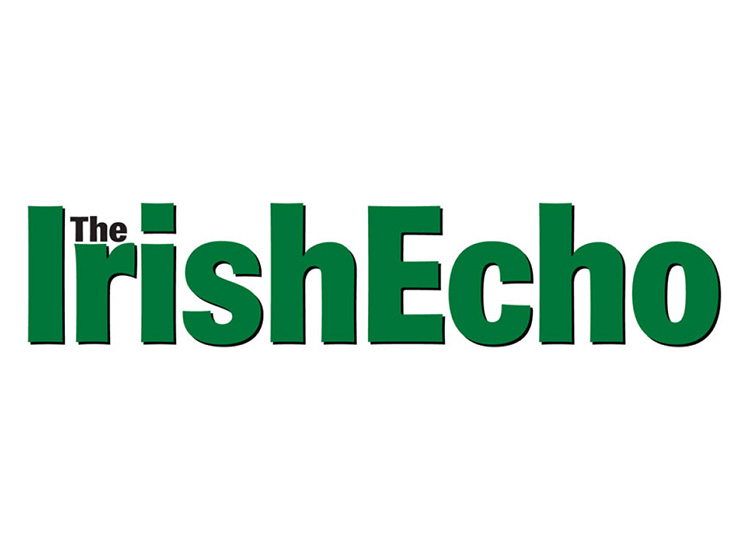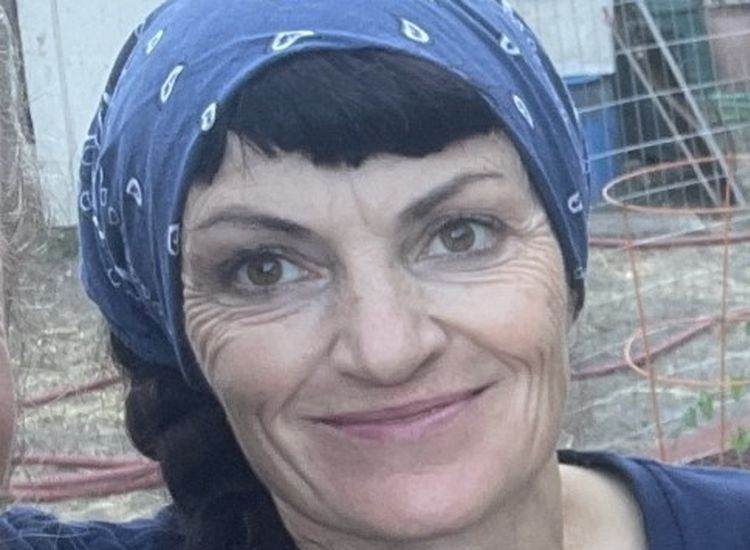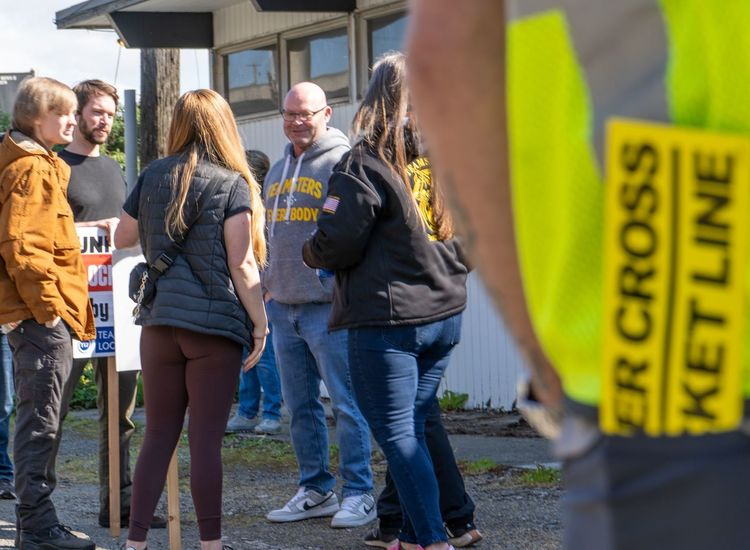Peter Robinson. RollingNews.ie photo.
The debate about the future, about a new Ireland and the demand for a referendum on unity is growing.
Civic nationalism in the North has found its voice and is energized on the demand for rights and for a unity referendum. It is not alone in talking about this issue and discussing its implications.
Increasingly there are also voices being raised from within unionism on the issue of unity. In part this is because of the shambles that is Brexit and the social, political and economic implications this will have for all of society in the North and across our little island.
But demographic and political changes in northern society are also playing an important role in encouraging this debate.
The 2011 census in the North was a watershed moment in the North’s political journey. Up to that point the issue of unity was for many – especially within unionism – an academic exercise on an outcome that many never thought would happen.
The threat of unity was often used by unionist politicians to frighten unionist voters. But no one within the political leadership of unionism ever publicly acknowledged that fundamental change in the constitutional status of the North was ever a possibility. Why would they?
The northern state was a gerrymandered entity, created on the basis of a sectarian headcount. It provided unionism with what was believed in 1920 to be a permanent, in-built two thirds majority. Unionism then set about consolidating its dominance further through discrimination in housing and employment and in the gerrymandering of electoral boundaries.
Almost a century later the 2011 census – which for the first time asked citizens about their political identity – revealed that less than half (48%) identified as British. A report published in May, “Sectarianism in Northern Ireland: A Review” by Professor Duncan Morrow examined the North’s changing demographics. It said: “There is a clear statistical trend towards a change in the religious minority-majority structure of Northern Ireland. On a strict analysis of identity, there is no longer a Protestant majority in Northern Ireland. There is a measurable trend towards a Catholic majority within Northern Ireland.”
While it acknowledged that it is uncertain the “extent to which this translates into choices about national identity” nonetheless the report reinforces the reality that significant demographic change is occurring.
This is underlined in the election results of recent years. In the 2017 Assembly election unionist parties lost their majority for the first time since partition. In the European election two weeks ago the combined nationalist vote was greater than that of the unionist parties and only one unionist MEP was elected.
In the local government elections a few weeks earlier the total number of Unionist councilors elected (206), from all of the Unionist parties, was less than 50% of the total number of councilors for the North.
At the same time, a Red C exit poll on May 24th for the local government and European elections in the South indicated that 65% of voters would vote in favor of a united Ireland if a referendum was held the following day. If you excluded undecided and non-voters, 77% were in favor of Irish unity. This has been a consistent trend in almost every opinion poll going back decades in that part of the island.
That same weekend, Eileen Paisley, the widow of former DUP Leader and First Minister Ian Paisley, said of partition; “perhaps that was a wrong division.” Mrs. Paisley was speaking on a BBC radio program.
When asked if she could live in a United Ireland Eileen Paisley said: “It would depend, I suppose on what, on how it was being ruled… I would like to think I could. It would take a lot to move me out of it … there are people of sense and sensibility who do not want to be fighting with their neighbors or their friends and who want to have it properly united.”
Writing in the Irish Times last Friday, Alex Kane, a former director of communications for the Ulster Unionist party, acknowledged that there will be a “border poll” and that “unionism needs to be ready for that eventuality.”
He also disagreed with Seamus Mallon’s recent proposal that the Good Friday Agreement should be re-written to provide unionism with a further veto over progress. Kane said: “I disagree with him that 50.1 per cent wouldn’t be enough to constitute victory for unity: it would certainly be enough for me if it was the margin of victory for the pro-UK side.”
Last July, former first minister Peter Robinson told the MacGill Summer School that while he did not think the North would want to leave the union with Britain he believed that it was important to prepare for the possibility of a united Ireland.
Robinson said that he would accept the results of a poll. “As soon as that decision is taken every democrat will have to accept that decision.” He also said that unionists would want “protections.”
This need for “protections” has long been recognized by republicans and nationalists. No one I know who wants a united Ireland believes that it should be any other than a warm house for unionism, built on a foundation of equality and inclusiveness. This is evident in the debate taking place on the unity issue.
At the start of the year the group called “Ireland’s Future” held a very positive conference in Belfast’s Waterfront Hall to discuss the Brexit debacle (“Beyond Brexit – The Future of Ireland”).
Last month it held an equally successful conference in Newry entitled "Our Rights Our Future.” A central plank of its debates has focused on how unionism can be encouraged to engage on unity and what rights protections are needed to obviate any fears.
Sinn Féin may be the most vocal United Ireland party but we are not the only one. Fianna Fáil, Fine Gael and the Irish Labour Party have dusted down their uniting Ireland positions.
Some republicans may dismiss that as rhetoric from these parties. That misses the point. Of course it’s rhetoric. But it is also popular, so the taoiseach and the Fianna Fáil leader will continue with it.
Our task is to get them to move beyond the rhetoric. To follow the logic of their utterances. To move from platitudes to planning. Others too must be encouraged to engage in this necessary work if the questions that everyone is asking are to be answered.
So rhetoric is not enough. The Irish government has a duty to plan for unity. There is a constitutional imperative on Dublin “to unite all the people who share the territory of the island of Ireland.” This cannot be accomplished without a plan.
Uachtarán Shinn Féin, Mary Lou McDonald TD, has called on the Irish government to establish a Forum for Unity, to build for unity and plan for unity.
The Irish government needs to open up consultations on how this might be done.
-
It needs to consult - to ask what kind of united Ireland we all want.
- There needs to be a process of dialogue.
- What shape should that dialogue take?
- There needs to be a transition phase after a referendum which votes for unity.
- What form and how long should that transition take?
This needs planning now. Not after the referendum. That is the one big lesson of Brexit. A referendum without a plan is stupid. So a referendum on unity must be set in a thoughtful inclusive process which sets out a program of sustainable options, including phases of transition.
What accommodations are needed to persuade political unionism that a United Ireland can work for it? Key to this is the need for it to be an agreed shared Ireland. What happens to the political institutions established by the Good Friday Agreement?
Winning support for a united Ireland is not just about persuading unionists although that is crucial. Everyone needs to be convinced of the advantages of unity – personal, economic, wages, health provision, environmental, cultural, peace, prosperity.
There will be a referendum on Irish Unity. I am confident of this. Winning that referendum is the biggest single challenge facing United Irelanders.









